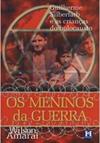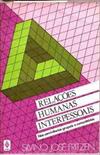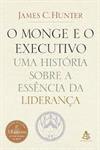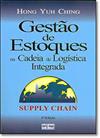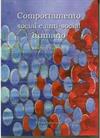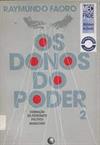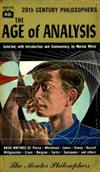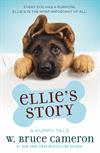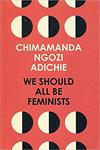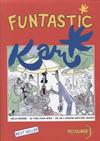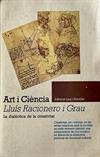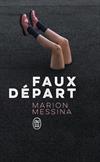
Fugitive Pieces
Registered by kinkazzo on 3/14/2003
1 journaler for this copy...
 Bookcrossers have already discovered this emotional book, as I can see from the various BC registrations of the title.
Bookcrossers have already discovered this emotional book, as I can see from the various BC registrations of the title.Still, I'm registering it again, also because I've registered the Italian version just before this one, so that Italian readers may appreciate the beauty of Michael's moving novel.
It's a heartening story, which made me believe in humanity again...
Hope my releasing it will make the book travel a lot and warm the soul of many people.

Link to Reading Groups and to her Critical Acclaims
INTERVIEW WITH ANNE MICHAELS
in Charlie's Portal & the Ubyssey, Nov. 1996
"When I write, I want to feel that something's at stake," says Anne Michaels, whose debut novel, Fugitive Pieces, was recently shortlisted for the Giller Prize, Canada's highest award for fiction. Internationally, rights have been bought in the UK, Germany, and Brazil, with more pending in France, Greece, and Japan.
Fugitive Pieces is a beautiful, poetic, and intelligent novel in two parts: the first two-thirds is Jewish-Polish poet Jakob Beer's account of how Athos Roussos, a Greek scientist and humanist, saved him (in every sense) from the Nazis; the latter part is Jewish-Canadian professor Ben's posthumous letter to Jakob, as he excavates the literary remnants and artifacts left behind.
Michaels took some time for an interview during the recent Vancouver International Writers (& Readers) Festival. Sipping black coffee, she recounts the origins of Fugitive Pieces.

"I had the beginning and the ending in my mind even as early as 1980," she said, "but I didn't let myself begin writing until quite a few years later, 1986, after my first book [of poems, The Weight of Oranges] came out. It's important that the facts have a chance to ferment, to be absorbed, in order to try and fathom whatever meaning is hidden among those facts.
"I did years of reading, years of research, followed all kinds of strange and stray paths and just let that material sink into me."
The need for time to deal with history, and life in general, is crucial to Michaels. Fugitive Pieces, clearly written with a poet's understanding of conciseness and space, implicitly presents a view of history as existing all at once—like geological records or like the words in a book. In a novel in which history is omnipresent, a continual tension exists between events and people.
This view of history is what Michaels describes as that of "the gradual instant."
"In the most simplistic sense, things don't just happen. Historical events don't just occur suddenly. Everything, whether it's a geological event, whether it's a volcano erupting or a tidal wave, there's been a buildup of events which causes the ultimate event. Historical events are the same way, even the most traumatic ones.
"And yet, when the horror is too great, we seem to respond to them with a kind of helplessness, with a kind of 'How did it happen?' It's the most common question, 'How on Earth did this happen?' Well, there are lots of reasons why things happen.
"We think that we will suddenly rise to an occasion when the occasion demands it—that human values, human integrity, these things don't have to be practiced, that somehow, when the moment of choice occurs, we will do the right thing. But these things have to be practiced. Human integrity, human values have to be constantly practiced. So that when the moment calls for it, we will be able to respond."
Persistent motifs such as geology, history, poetry, music, language, love, and meteorology lodge themselves in the bedrock of the novel like granite veins. But they're more than mere literary devices.

"They're, for me, very deep metaphors. For example, weather. What's the phrase? 'Everybody complains about the weather, but nobody does anything about it.' There's a sense of time, of consequence, of accumulation that all these sciences hold. They're physical. They're real. They're not metaphors of abstraction. They're metaphors of reality, taken from reality. And that's important for me."
Nor is the second World War an abstraction. For Michaels, it demanded her attention.
"The war was very present. Also, when you think of it, the whole first half of the century was dominated by war. And so it seemed to make sense to me personally to have to have some kind of relationship with that fact, to get at what that means."
Anne Michaels made a huge emotional gamble in undertaking this project: it was a matter of faith.
"The events of the second World War are so horrific that, as a human being, I felt that my faith—in the broadest sense of the word 'faith'—threatened. And so it seemed to me personally very important to try and earn a faith, or try and discover that faith in humanity is possible after those historical events. And so, when I started the book, I didn't know whether in fact I would come out the other side with any belief at all. And that was a big risk. I felt that, personally, to be a very big risk.
"Maybe the book also took a long time to write because I was determined to come out the other side with a faith that had been earned through what I had found out and not some faith that's applied or a grid over events."
Fortunately, an optimistic faith does emerge—a physical faith.
"[Jakob] reaches this conclusion that faith can be found in the body. He says, 'Who can tell with absolute certainty the difference between the sounds of those who are in despair and those who want desperately to believe.' And he sees that precise moment of struggle as proof that there's a faith in matter, in physical matter—almost a blunt, pragmatic faith…that body itself wants to carry on. It's not reductive to him. To him, it's miraculous."
Despite her faith in the human ability to survive, Michaels is not blind to the human ability to be cruel to each other. In a passage that captures the essence of Fugitive Pieces, Athos says, "There's nothing that a man will not do to another. But there's also nothing that a man will not do for another.'"
Or, in Michaels' words, "We forget the power of the small act of love. We forget how powerful that is. Often, we feel hopeless in the face of history, in the face of economics, in the face of these large forces, but really the small individual act can be incredibly powerful."
SHORT BIOGRAPHY

Anne Michaels was born in Toronto, Canada, in 1958. She is the author of one novel Fugitive Pieces, which explores the possibility of love and faith alter the Holocaust, with language marked by power, elegance, and integrity. Ms. Michaels, who has also composed musical scores for the theater, has said "when you put a tremendous amount of love into your work, as in any relationship, you can't know--you can only hope--that what you're offering will in some way be received. You shape your love to artistic demands, to the rigors of your genre. But still, it's a labor of love, and it's the nature of love that you must give it freely."
Anne Michaels's two collections of poetry are The Weight of Oranges (1986), which won the Commonwealth Prize for the Americas, and Miner's Pond (1991), winner of the Canadian Authors Association Award and shortlisted for the Governor General's Award and the Trillium Award. Both collections have recently been released in one paperback volume entitled THE WEIGHT OF ORANGES/MINER'S POND, published by McClelland & Stewart. With her first novel, Fugitive Pieces, Anne Michaels was shortlisted for the Giller Prize and the Canadian Booksellers Association Author of the Year Award, and won the Trillium Prize, the Chapters/Books in Canada First Novel Award, The Beatrice and Martin Fischer Award (the main prize in the Jewish Book Awards), and England's prestigious Orange Prize. To date, rights to the novel have been sold to 19 countries. Anne Michaels lives in Toronto.

For more reviews, interviews, and articles: click Anne's photo and visit her website!
